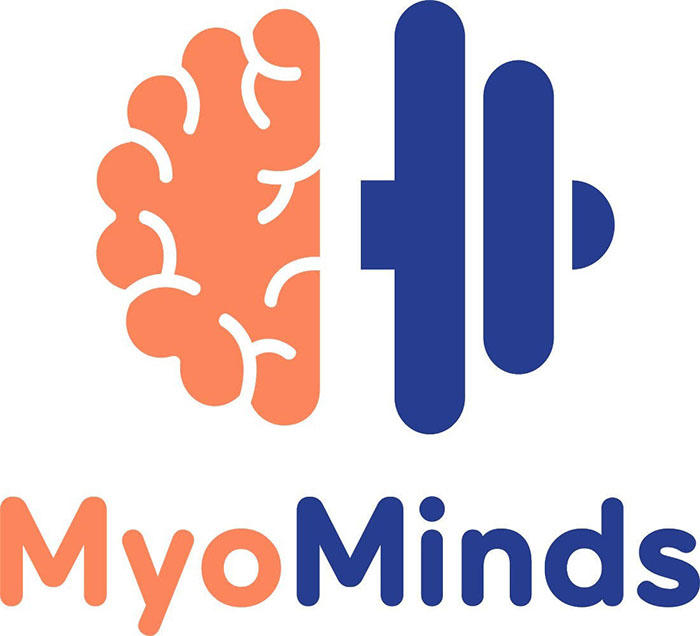This week is Eating Disorders Awareness Week and the theme, in the UK, is eating disorders in men. George Mycock is a PhD candidate at the University of Worcester and is one of the postgraduate research students in the Inclusive Sport and Physical Activity Research Group. In this academic blog, George will explain some of the key issues around eating disorders in men which is part of his doctoral research.
Having chosen to open this blog I can assume you have heard of eating disorders before, you may even know someone who has experienced one. Now, I ask you to take a second to sit back and imagine someone with an eating disorder…
If my assumptions are correct, you will likely have pictured someone with most (if not all) of these characteristics:
- Thin
- White
- A woman (you may have focused on men due to the title of the blog)
These are the most common stereotypes within eating disorders, and they are assumptions that my Doctoral research is trying to challenge. Only 6% of those with eating disorders are underweight (The Hearts, Minds and Genes Coalition., 2021), and the lack of diversity in ethnicity and gender is often due to a range of barriers, including fear of discrimination, a lack of diversity in healthcare service staff, and feminised healthcare resources (e.g., leaflets, websites etc. Cachelin et al., 2001; Murry et al., 2017; Downs & Mycock, 2022).
Eating disorders are mental health conditions where the individual has a negative relationship with food and often their body. People experiencing eating disorders usually restrict and/or binge on food, experience poor body image, and may compulsively exercise. Most theories around eating disorders state that these behaviours are an attempt to manage negative emotions and/or alter one's body towards some form of body ideal. From the first discovery of eating disorders in the 1800s, it was around 100 years before it was acknowledged that men could also experience them. Interestingly, prior to 2016, less than 1% of eating disorder research has included men (Murray et al., 2016). No wonder most of us picture a woman when asked to think of someone with the condition.

We know that roughly 25% of people with an eating disorder are men (Hudson et al., 2007) and we have seen a 132% increase in men seeking support for eating disorders in the NHS from 2013 - 2020 (NHS Digital, 2020). Eating and body image-related disorders in men may often present differently than in women. Men with eating disorders, for example, are likely to engage in higher levels of compulsive exercise (Murray et al., 2014), and more often strive for a muscular physique as opposed to a thin physique (Spratt et al., 2022). As such, men are more likely to develop problematic thoughts and behaviours around obtaining a muscular physique. These potentially problematic cognitions and behaviours may include: excessively lifting weights - even through sickness or injury; obsessively counting nutrient contents of food, and feeling significant negative emotions when not achieving daily aims; taking part in extreme restrictive dieting to reduce body fat and/or force-feeding to increase muscle size (often known as the ’bulk and cut diet’); and feeling a high level of anxiety and fear around not being muscular enough (Tod et al., 2016; Murray et al., 2017).
Part of the issue with such exercise and eating behaviours, as I am sure some of you may have already thought, is that they are commonly accepted as ‘healthy’ actions to undertake. Counting calories and macronutrients, and lifting weights to build muscle are often healthy actions for many people (I am not trying to dispute that), and it may well have been an initially healthy choice for those who now struggle with these behaviours. A confusing aspect of these muscularity-oriented behaviours is where the line is drawn between ‘healthy’ and ‘disordered’. Often this line is blurred and different for everyone, but seems to consistently come back to the ‘meaning’ of the behaviours. For those where these actions can have a negative impact on their life, it seems that they have become a way of proving something. A common example seen in men is that muscularity-oriented behaviours may become an attempt to provide evidence of masculinity, to themselves and others, often because their social circle, and/or the society they live in, has convinced them they aren’t sufficiently masculine enough (Edwards et al., 2017).
This society-set masculine standard becomes more obvious when we look at social, and other, media directed towards men in the ‘fitness’ community. Such platforms often claim that one must be ‘man enough’ to complete a fitness challenge or that in order to acquire a muscular physique one must push through and ignore physical and emotional pain (e.g., ‘no pain no gain’ and ‘pain is just weakness leaving the body’), a common trait of being ‘manly’. This undertone of masculinity that is embedded in the fitness community likely fuels part of the motivation for men, who are led to believe they are not masculine enough, to take on its values.
Research also indicates that men who follow traditional masculine roles are less likely to seek help for psychological conditions and/or related behaviours. A concern is that men with an extreme drive for fitness may be experiencing distress and related eating and exercise disorders, but to seek professional help would be to turn their back on the masculine and fitness values by which they are surrounded. If these men do seek professional help, they are most likely to be referred to services that are often tailored to assist women (e.g. eating disorder services, Downs & Mycock, 2022) and are run by medical professionals who often feel unprepared to support men (Foye et al., 2023). My current Doctoral research, in collaboration with the award-winning charity First Steps ED, aims to explore how men with extreme muscularity-oriented desires and related eating and exercise disorders may seek and experience care. My research also hopes to expose the potential care gaps and identify how healthcare services could support outreach to men.
If you would like to hear more about the topics covered within this blog, on the 2nd of March 2023 George is co-leading an Eating Disorder Awareness Week webinar on ‘Gym Culture and Eating Disorders.’ Tickets for this webinar can be accessed here.
Help available:
If you are a student and would like to discuss any concerns raised in/by this article, support is available on campus.
Support is also available more generally through charities like First Steps ED, The Body Dysmorphic Disorder Foundation, or by calling the Samaritans on 116 123.

Contact George:
If you would like to hear more about my research work, you can follow me through my mental health organisation MyoMinds on Twitter (@MyoMinds) and Instagram (@Myo_Minds). With MyoMinds I have worked with many different organisations and people, including creating resources around developing healthy relationships with exercise with Mind and instigating several interesting conversations via the MyoMinds Podcast.
If you would like to discuss this research or any collaborations, you can contact me at MYCG1_22@uni.worc.ac.uk
George’s PhD is supervised by:
Dr Christian Edwards – University of Worcester
Prof. Győző Molnár – University of Worcester
Dr Una Foye – Kings College London
References
Cachelin, F.M., Rebeck, R., Veisel, C. and Striegel‐Moore, R.H., (2001). Barriers to treatment for eating disorders among ethnically diverse women. International Journal of Eating Disorders, 30 (3), 269-278. https://doi.org/10.1002/eat.1084
Downs, J., & Mycock, G. (2022). Eating disorders in men : limited models of diagnosis and treatment are failing patients Outdated ideas about eating disorders — and who experiences them — are preventing people from. March, 1–2. https://doi.org/10.1136/bmj.o537
Edwards, C., Tod, D., & Molnár, G. (2017). Searching for Masculine Capital: Experiences Leading to High Drive for Muscularity in Men. Psychology of Men & Masculinity, 18 (4), 361-371. https://doi.org/10.1037/men0000072
Foye, U., Mycock, G., & Bartle, H. (2023). “It’s a Touchy Subject”: Service Providers’ Perspectives of Eating Disorders in Men and Boys. Journal of Men’s Studies, 0(0), 1–23. https://doi.org/10.1177/10608265231153087
Hudson, J. I., Hiripi, E., Pope Jr, H. G., & Kessler, R. C. (2007). The prevalence and correlates of eating disorders in the National Comorbidity Survey Replication. Biological psychiatry, 61(3), 348-358. https://doi.org/10.1016/j.biopsych.2006.03.040
Murray, S.B., Griffiths, S., Rieger, E. and Touyz, S., (2014). A comparison of compulsive exercise in male and female presentations of anorexia nervosa: What is the difference? Advances in Eating Disorders: Theory, Research and Practice, 2(1), 65-70. https://doi.org/10.1080/21662630.2013.839189
Murray, S. B., Griffiths, S., & Mond, J. M. (2016). Evolving eating disorder psychopathology: Conceptualising muscularity-oriented disordered eating. British Journal of Psychiatry, 208(5), 414–415. https://doi.org/10.1192/bjp.bp.115.168427
Murray, S. B., Nagata, J. M., Griffiths, S., Calzo, J. P., Brown, T. A., Mitchison, D., Blashill, A. J., & Mond, J. M. (2017). The enigma of male eating disorders: A critical review and synthesis. Clinical Psychology Review, 57(August), 1–11. https://doi.org/10.1016/j.cpr.2017.08.001
NHS Digital., (2020) Hospital admissions for eating disorders by gender and ethnicity - NHS Digital. [online] Available at: <https://digital.nhs.uk/supplementary-information/2020/hospital-admissions-for-eating-disorders-by-gender-and-ethnicity> [Accessed 12 May 2022].
Spratt, C. J., MacKenzie Myles, L. A., & Merlo, E. M. (2022). Eating Disorders in Men: A Comprehensive Summary. Journal of Mind and Medical Sciences, 9(2), 249–254. https://doi.org10.22543/2392-7674.1362
The Hearts, Minds and Genes Coalition for ED's, (2021). The Cost of Eating Disorders in the UK 2019 and 2020. [online] The Hearts, Minds and Genes Coalition for ED's. Available at: <https://www.yumpu.com/en/document/read/65877873/the-cost-of-eating-disorders-in-the-uk-2019-and-2020-with-annex> [Accessed 8 November 2021].
Tod, D., Edwards, C., & Cranswick, I. (2016). Muscle dysmorphia: Current insights. Psychology Research and Behavior Management, 9, 179–188. https://doi.org/10.2147/PRBM.S97404
Find out more about the School of Sport and Exercise Science at Worcester